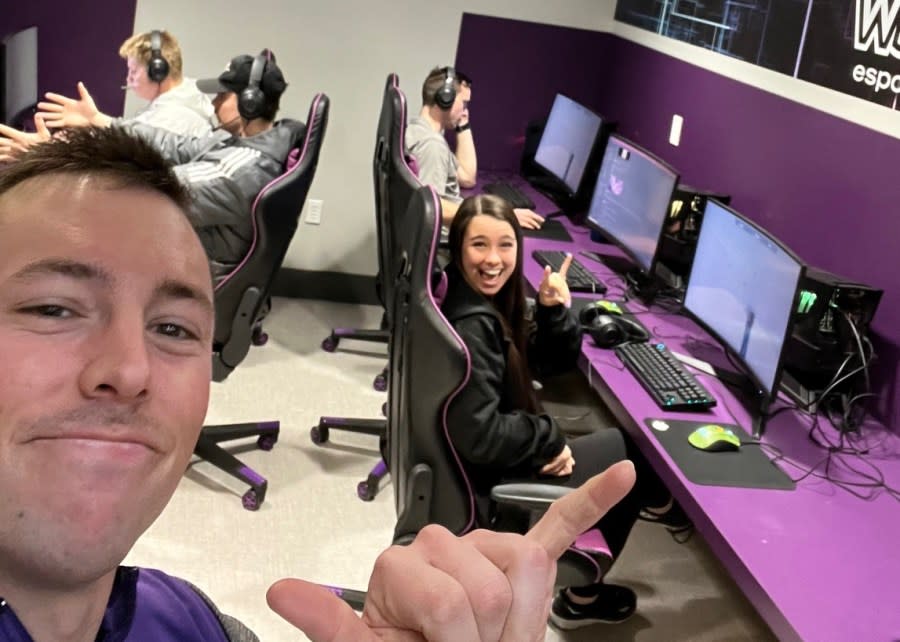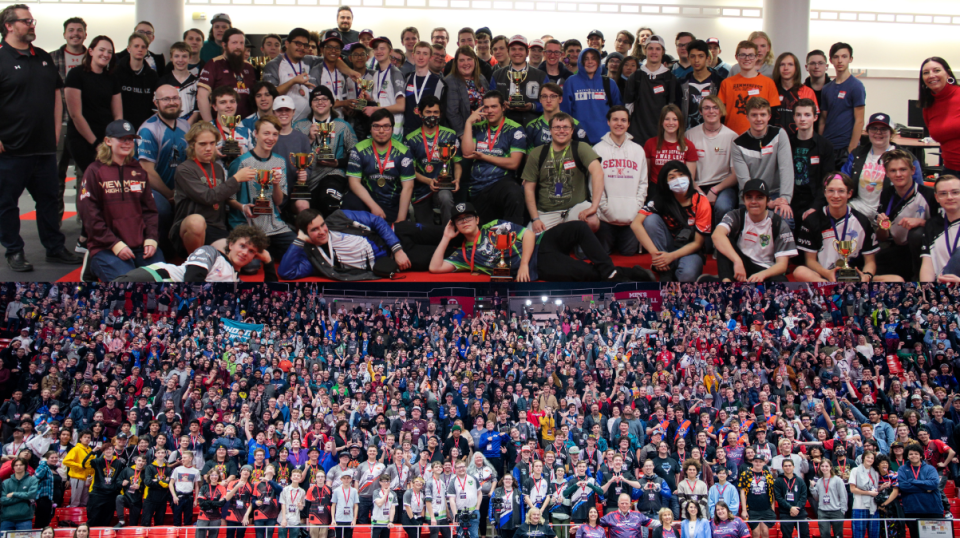Esports, stress and the body: Utah lab aims to explore health impacts of competitive gaming

SALT LAKE CITY (ABC4) — What does being an esports athlete — someone who plays video games competitively, under hours of pressure — do to their bodies?
That’s one of the questions a new esports lab at Weber State University is working to answer.
Utah officially changed its license plate requirements – Here’s when you can ditch your front plate
Spearheaded by Dr. Bryan Dowdell, the lab is one of a handful of similar research spaces that have opened up across the country in recent years, as esports has become a $1.3 billion global industry. To him, gamers are an untapped research subject.
“So my whole interest lies in investigating the gamer population, specifically trying to define different types of gamers and investigating the unique characteristics and the health risks associated with the different types of gaming,” Dowdell said.
The Weber State lab is part of the university’s newly-renovated Human Performance Lab. It features five dedicated gaming stations, which are used for practice by the school’s junior varsity gaming athletes.
In return for practice space, the researchers strap on blood pressure cuffs and heart rate monitors to the gamers so they can study the effects of intense gaming sessions on the human body.

While Dowdell said there are well-established risks associated with sitting for prolonged periods of time, there hasn’t been much research focused on the consistent states of stress — increased heart rate and blood pressure — esports athletes experience while in the throes of multiplayer competition.
“We need to delve deeper into what that actually means health-wise,” Dowdell said, adding that such research could help set guidelines for esports athletes in the future.
Currently, esports stars make millions of dollars competing in massive tournaments, which are watched by fans across the world via live streams. Prize pools for single competitions have reached as high as $40 million in recent years.
On a lower level, colleges such as Weber State offer scholarships to competitive gamers, and high schools are increasingly developing programs to help students turn their love of video games into vehicles for structured growth.
Audra Yocom, director of technology education for Ken Garff Esports, said competitive gaming has surged in popularity in high schools across the country and in Utah.
“It’s been growing exponentially, and I’ve been involved with it my whole teaching career, and I’m nine years in now,” said Yocom, a teacher at Pleasant Grove High School.
Last week, Ken Garff Esports held its annual spring celebration, which brought more than 2,400 high school students from across Utah to the Jon M. Huntsman Center in Salt Lake City. Three years ago, there were only a couple dozen competitors who attended the event.

While Yocom is curious about what the Weber State lab will discover about the health effects of competitive gaming, she said that for her students esports provides a powerful sense of meaning and connection.
“Literally, the reason some students graduate is because they keep up good grades to be a part of the competitions,” Yocom said. “Or it’s where they’ve made friends, and I’ve literally seen it save students’ lives, because they found a place to connect at school.”
At Weber State, there are 21 scholarship students on its esports varsity team, with athletes competing in titles such as League of Legends, Rocket League, and Valorant. About 20 more students are on its junior varsity team.
For Dowdell, his interest in researching esports offers an avenue to connect with students, many of whom have been playing video games their whole lives.
“The students love it,” he said. “As soon as I mention it in class, their ears perk up.”
For the latest news, weather, sports, and streaming video, head to ABC4 Utah.

